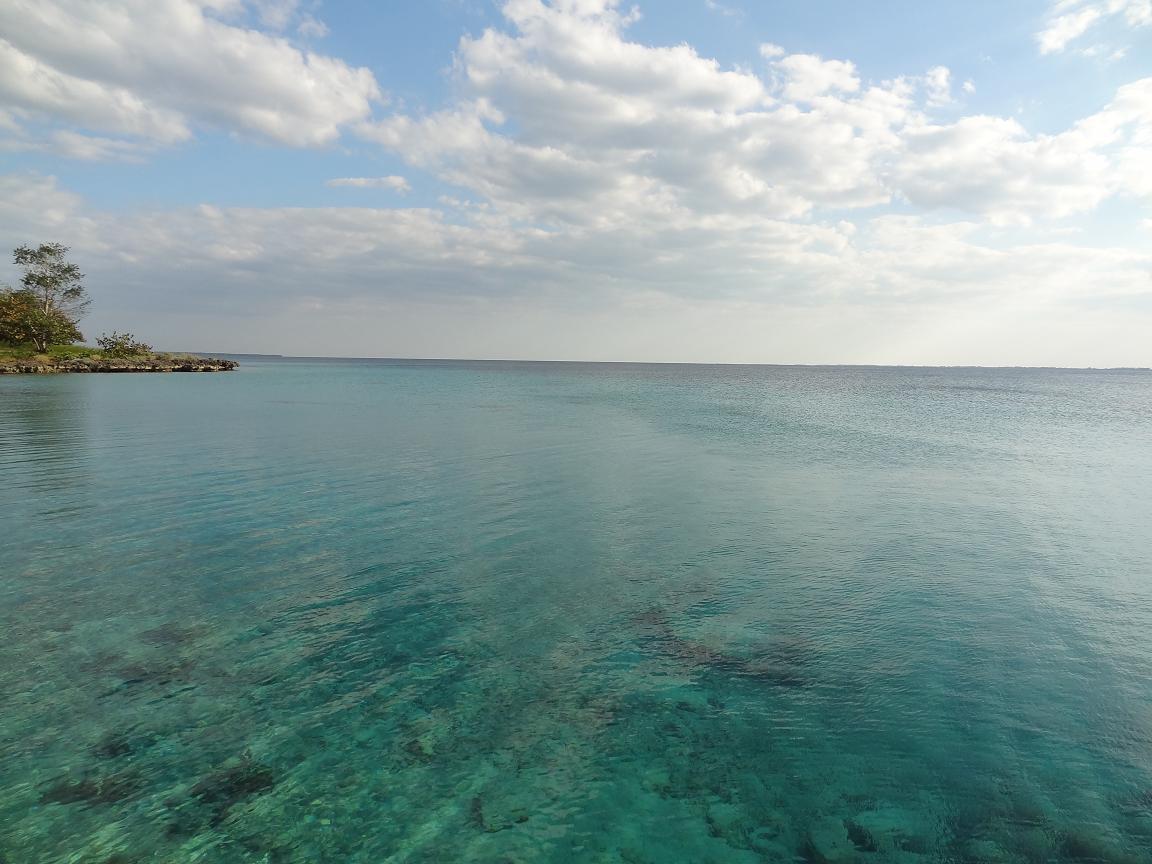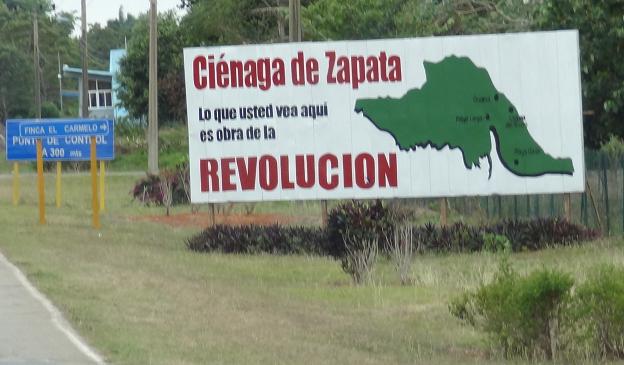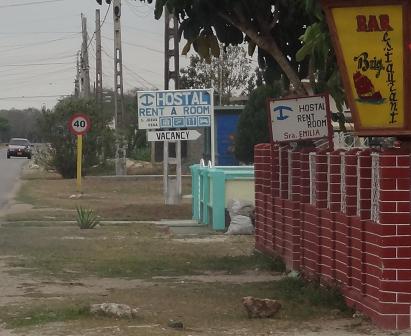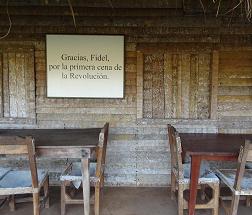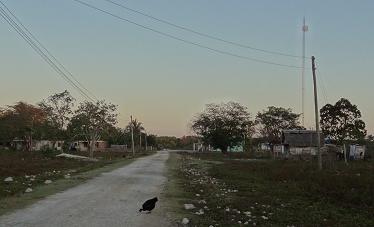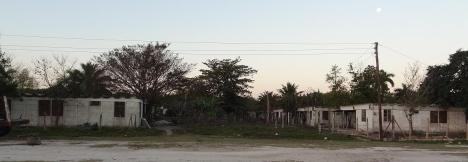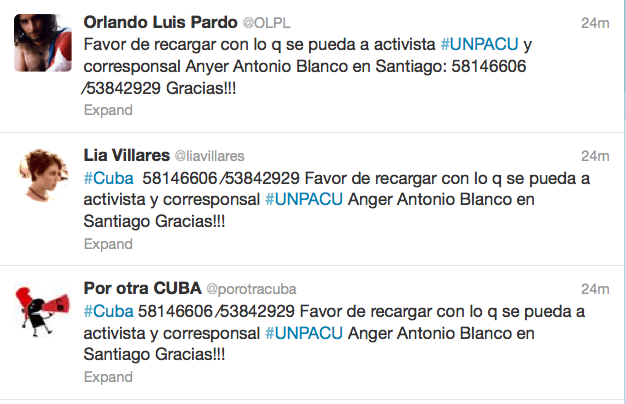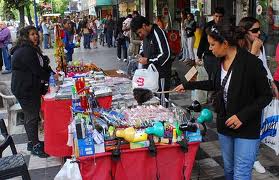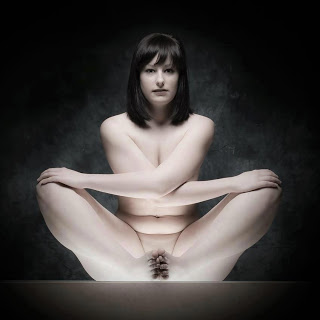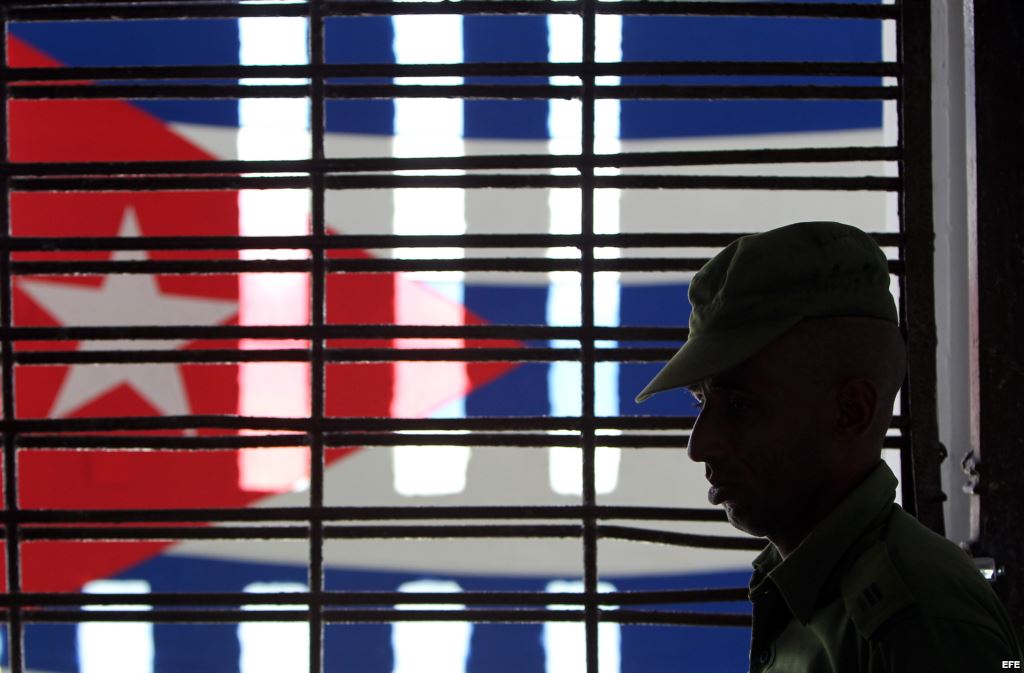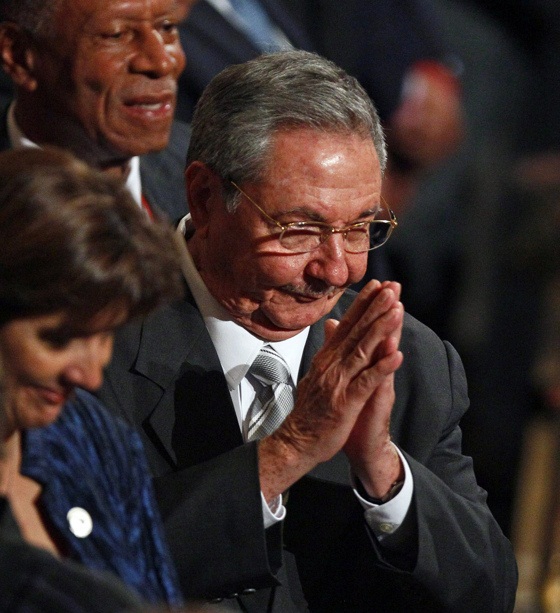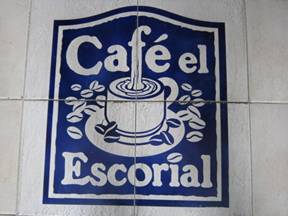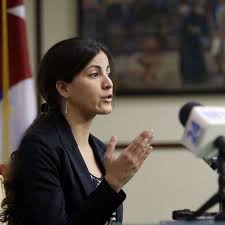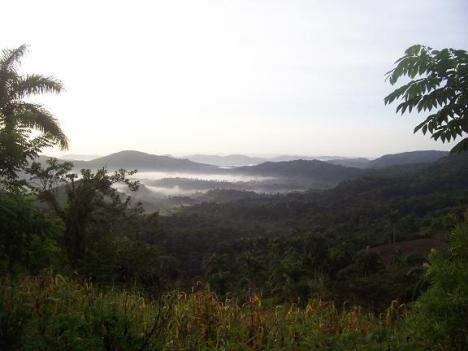 Unbelievable. Some time ago the post office left at my house an envelope full of my maps that I had inadvertently left behind at a little house in Sierra del Cristal, back east. The extraordinary thing is that they arrived at my house two years and two months — the date was shown on the postmark — after they day they were sent: something suspicious they kept longer than usual in our respectful post office; they opened it, and then sealed it and sent it on.
Unbelievable. Some time ago the post office left at my house an envelope full of my maps that I had inadvertently left behind at a little house in Sierra del Cristal, back east. The extraordinary thing is that they arrived at my house two years and two months — the date was shown on the postmark — after they day they were sent: something suspicious they kept longer than usual in our respectful post office; they opened it, and then sealed it and sent it on.
How different the peasants and workers in the wood whom I could never thank for this postal favor, and all the others of those trips, who accepted no pay, although they lived so humbly it hurt. A chicken, the only one, sacrificed and cooked for guests; the little rice shared with strangers from Camaguey; a workday dedicated to free guide service for some stubborn boys climbing, among the thorns and mountain streams; the most falling-apart shoe in the world immediately sewn up; all that solidarity, integrity, even amid the monumental scarcities with which they live.
All this on the Pico de Cristal — Crystal Peak — which at 4,000 feet is the highest mountain in Cuba outside the Sierra Maestra. And the least docile of all I visited. Relatively close to the northern coast of Holguin in the area of Levisa, they say it is easier however to climb it from the south, coming from Santiago town Mayari Arriba, which is about 15 kilometers away.
The summit is almost on the border of the two provinces, although it falls on the Holguin side. A bust of the Mambi General Calixto García, facing north, surrounded by thorns, gives the sense of belonging that those from Holguin have.
The Sierra del Cristal beat me once, when I ventured unguided with a fledgling group, which went into shock three hundred meters from the top, our shoes broken, completely losing the way forward and back, out of water and crackers and with threatening rain that poured down on us, what they call “drizzle” in those uninhabited hills, which are the wettest of the country, is the same thing as saying torrents of water or mud pushing you off some cliff.
The annihilated scouts advanced and recoiled a thousand times, without reaching the top. Afterwards I didn’t not know if we went down or fell down. A hospital worker from the forest company that cuts down the pine trees in that region, came out to find us with the shock that any mountain spring would have hit us with. She found us wasted in little pieces, lying there exhausted and peaceful on a sandy ford of the Levisa River.
But last year we had a rematch, more organized and tough, and better guided, and we got there. That stretch of the Levisa river is the most striking natural thing in Cuba. In the first trip we only passed through it in our way to the mountain — if you come from the southeast, as we did, it’s a crossing point — but in the second trip, with more time and knowledge of the field, we continue downstream to the north.
And the discovering of the great white sand beaches, and the infinite waterfall ladder, more abrupt and continuous than the ones of the niches of the Escambray, conquered us. The white sand seems to release from the saline deposit of the slopes of Pico de Cristal itself; from that beach surely comes the name of the mountain and the region.
The water runs down there, constant and very cold no mater the season, through plastic pipelines that take advantage of gravity, from the mountain to the houses where the workers spend the night. The hidden caves of that prehistoric mammal, the almiqui, can be found with a little patience and a good eye. The wild dogs howl all night, and traces of wild pigs can be found any path near the river. On the mountain there are treacherous roads that the guide doesn’t warn us end at some precipice and vines everywhere. Pico de Cristal, stubbornly locked in it isolation and trails, is the only great mountain in Cuba for travelers who love the difficult.
But another mountain, less easy to beat, amazes in these parts: a mountain of oblivion. Tucked in the middle of nowhere, are the workers of Sierra Cristal Forest Enterprise and dozens of coffee farmers. Those who cut or plant pines — although deforestation always wins — usually live there, in the middle of the mountains, one or two weeks or two weeks at a time, because the difficultly they have — with the bad transport and the bad roads — getting back and forth from their homes in Mayari Arriba or Tumba Siete or Los Jagüeyes.
But in those immense hills, in their camps there is no electricity no, no phones or music or shops or parks or people to talk to but themselves. And they die of boredom and apathy, with old clothes and the frugal food they eat not to faint — beware, in the middle of the lost mountains there are no doctors — and some drown their nights in waves of alcohol, in a boring destruction it’s not easy to escape. All for a very poor wage that leaves their families in poverty, a wage they cannot haggle about because they have no union to engage in the battle of rights.
The coffee farmers, even with the recent increases of the money the state company pays for their product, continue to suffer the evils of the Cuban countryside: a forced and demanding monopoly with non-negotiable prices paid for production — and always watching for skimming — and this amid an almost complete lack of equipment and supplies to facilitate the work. After an endless series of absurdities from higher up, it always ends with the overwhelming presence of the State and its officials.
These are the stories one hears while walking through the felled pine trees or sliding through the wet and muddy coffee plantations, where it seems those who should solve the problems never come.
The person who first talked to be about the Crystal Mountains was a gentleman who was with the rebels there in the ’50s, with that guerrilla troop protected by the incredible nature and the even greater solidarity of the people of Mayari Arriba.
This “Second Front” as they call it in the town, a few days ago celebrated the 55th anniversary of the struggle to improve the lives of many people. Whoever walks along those mountains realizes that obviously those guerrilla leaders didn’t accomplish much. And time is running out.
14 March 2013



